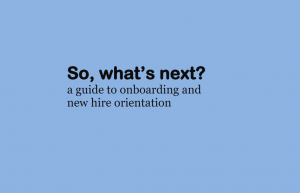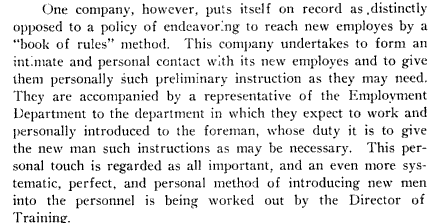 Developing your team the “Edward Jones” way
Developing your team the “Edward Jones” way
For the past few months, my youngest brother has been going through the hiring process for the hardcore Edward Jones PASS program. I had the opportunity to sit and talk with him about the steps he took to get the position, and it honestly floored me at all the hoops he had to jump through to even be considered as a serious candidate. The more I thought about it, the more I realized that EJ had put some serious thought into the process and what they wanted their final candidates to look like.
Here’s the basic process to go through for the highly competitive PASS program:
- Apply on website
- Lengthy web application process
- Someone at EJ performs resume review
- If considered qualified, you are notified via email to call in and listen to PASS conference call and Q&A (~40 applicants on the line at once)
- If you attended the call, you are notified via email to call and schedule your own phone screen
- During the phone screen, the EJ representative asks how you would build a sustainable investing business, what your plans are, what you understand of the PASS program, etc.
- If you pass the phone screen, they send you the job description again for review, then you are notified to schedule your own phone interview
- During the phone interview, the EJ asks fairly standard interview questions. This lasts 45-90 minutes based on your responses. If you do not understand the job requirements (multiple questions based on the job description you’ve been furnished previously), you are not considered qualified. At the end of the call you are given an immediate verbal yes/no notice
- You receive an email a few days later and are provided a task to complete. Once you complete the task, you report back on your results. If you did not meet your goal, you are eliminated from the process
- If you complete the task successfully, you are notified to schedule a face-to-face interview to discuss the task and answer a few routine interview questions
- At the end of that meeting, they tell you that you’ll know if you are still being considered within 4-5 days
- Someone calls you to make sure you are interested specifically in the PASS program and provides conference call info
- You call into PASS conference call again to listen to the program description and have a chance to ask questions
- You call into a conference call only for PASS-qualified candidates a few days later
- One month before your scheduled start date, you must turn in this information: fingerprints/drug screen/paperwork/background check
- If you pass each of those hurdles, you are considered qualified to join the early stages of the PASS program
I don’t know about you, but I didn’t have even half as much difficulty getting my current job. I think having a process like this leads to several things:
- Your final candidates are fairly knowledgeable about the company, their role, and how that fits into the organizational structure (I’ve met people in previous jobs with 5 years of experience who don’t even know those kinds of details!)
- The remaining candidates are deeply committed. They’ve invested several months of sweat equity into the process, and they won’t just walk away from the position halfway through the hiring steps
- The people who don’t make it in still realize it’s a good company with high standards for filling its positions
This article only covers the pre-hire steps involved with developing your team. Hopefully I’ll have some time soon to write on post-hire steps you can take in developing a highly committed workforce. For more on the topic, be sure to check out how to develop managers by getting them involved.
Anyone else have a long, difficult hire process? Did that leave you feeling more committed to the organization? Less?Â


